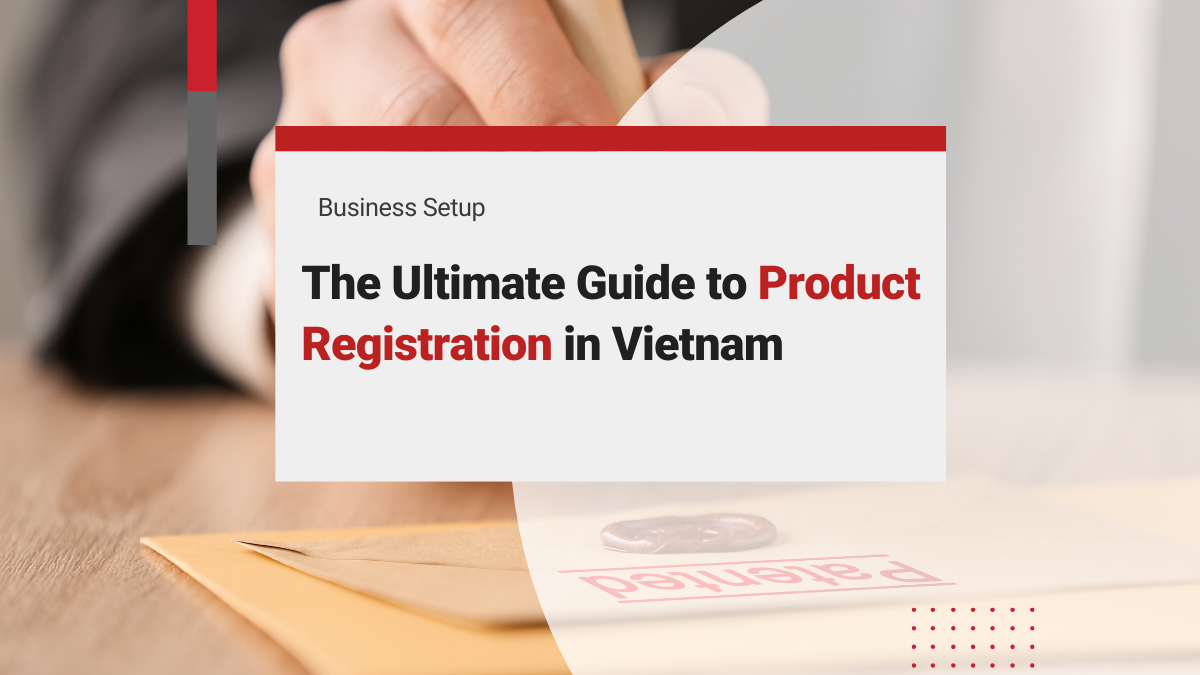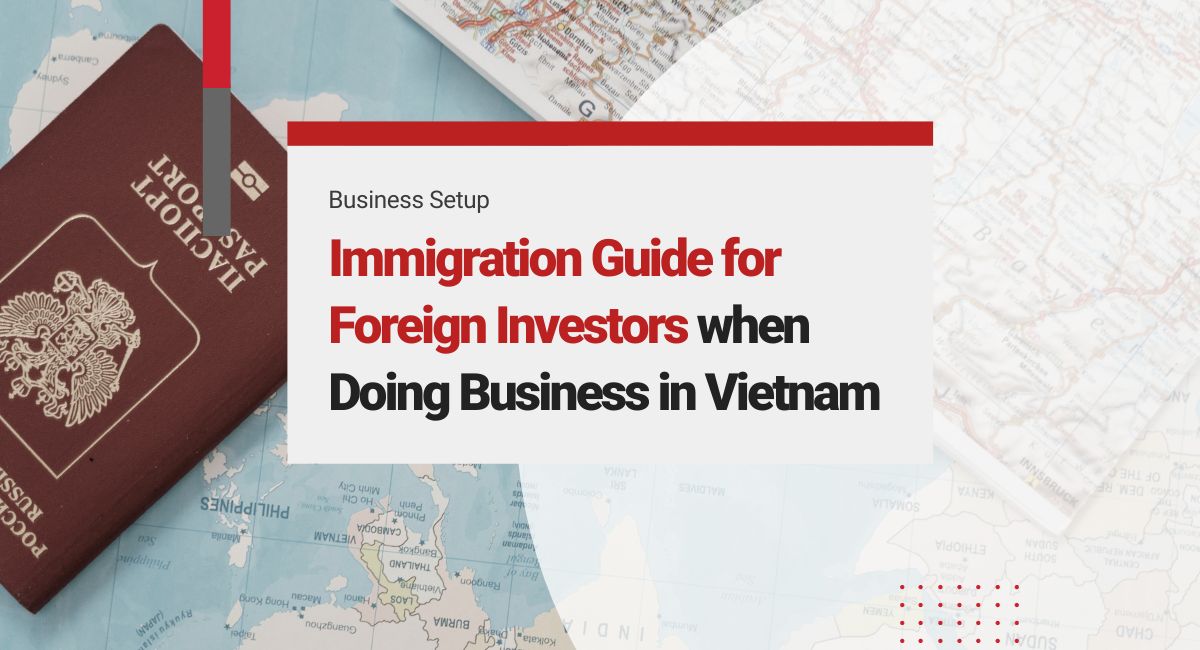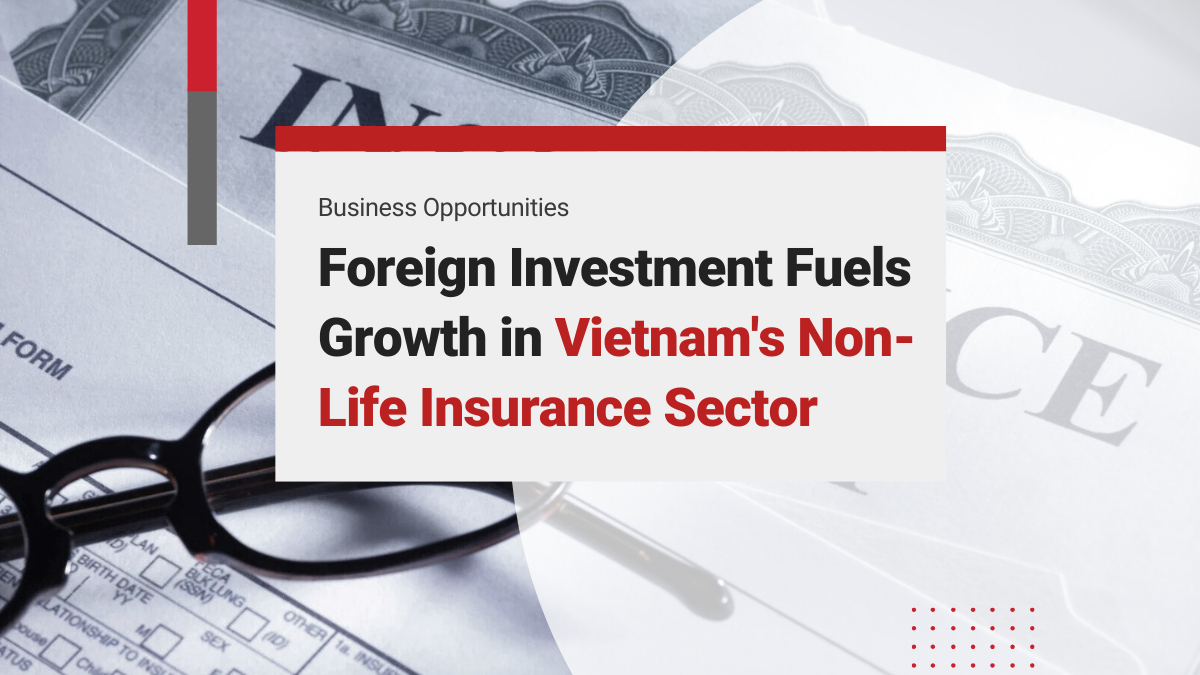Wondering what a subsidiary company is? It’s a separate legal entity owned by a parent company, providing benefits like liability protection and market flexibility. Many foreign businesses begin their journey by exploring company incorporation in Vietnam, as it lays the groundwork for establishing subsidiaries and expanding operations smoothly. In this guide, we’ll explain how to set up a subsidiary company in Vietnam and cover the essential steps, legal requirements, and benefits of establishing a subsidiary company.
Why Vietnam is an Ideal Destination for Business Expansion?
Vietnam’s rapid economic growth makes it an attractive destination for businesses looking to expand their footprint in Asia. With GDP growth of 7.09% in 2024 and FDI inflows rising 34.7% to $10.98 billion in Q1 2025 alone, Vietnam has proven its economic resilience and appeal to international investors. Establishing a subsidiary company in this vibrant market can provide unique strategic advantages, such as direct access to local consumers and the ability to adapt quickly to market changes. The incorporation process in Vietnam is relatively straightforward and can be completed in approximately 15-30 days through special investment procedures introduced in 2025, making it a feasible option for businesses eager to start operations swiftly.
In the first half of 2025, Vietnam attracted $11.72 billion in disbursed FDI, representing the highest realized amount for a six-month period in the past five years. The manufacturing and processing sector led foreign investment with nearly $12 billion, accounting for 56.5% of total registered capital.
Setting up a subsidiary enables companies to access local markets and operate independently, tailoring their strategies to the Vietnamese market. Whether it’s appointing new team members or setting up the management team, the flexibility offered by a subsidiary structure can be a game-changer.
Essential Guide to Setting Up a Subsidiary Company
Setting up a subsidiary company in Vietnam involves several strategic steps that begin with selecting the appropriate legal entity. The most common form of subsidiary is the limited liability company (LLC), which offers flexibility and operational independence. Unlike branches, subsidiary companies are separate legal entities, allowing them to operate independently from the parent company. This separation not only provides a buffer against liabilities but also allows subsidiaries to tailor their business strategies to local market conditions.
One of the significant advantages of establishing a subsidiary in Vietnam is the ability to fully own the entity without needing a local partner. This full ownership means the parent company retains complete control over the subsidiary’s operations and governance. Furthermore, the process of setting up a subsidiary can take from weeks to several months, depending on various factors such as industry requirements and bureaucratic processes. However, with the introduction of Decree 19/2025/ND-CP effective February 10, 2025, eligible projects can now benefit from expedited investment approval processes, reducing timelines by up to 75%.
From January to May 2025, Vietnam recorded 66,800 new enterprises with a total registered capital of 647.1 trillion VND, representing a 0.6% year-on-year increase. The average registered capital per enterprise reached 10.4 billion VND, showing an 18% increase month-on-month.
To ensure smooth operations, a subsidiary must have a registered address in Vietnam and comply with local regulations, including preparing and filing financial statements. These steps, while seemingly bureaucratic, are crucial in maintaining compliance and ensuring the subsidiary operates within the legal framework of Vietnam.
Types of Subsidiary Companies
Understanding the different types of subsidiary companies is crucial for businesses planning to establish a subsidiary in Vietnam. The most common legal entity used is the limited liability company (LLC), which can be fully owned by a foreign entity without the need for a local partner. This type of subsidiary operates as an independent legal entity, separate from the parent company, which allows it to pay its own taxes and debts.
Another type of subsidiary is the joint stock company, which involves multiple shareholders and is suitable for businesses planning to raise capital from public investors. There are also joint venture companies, where foreign companies collaborate with local partners to combine resources and expertise. Each type of subsidiary offers different advantages and can be chosen based on the specific needs and strategic goals of the parent company.
Subsidiary companies can also be categorized based on their ownership structure and level of control by the parent company. A first tier subsidiary is directly owned by the parent company, while second tier subsidiaries and other tiered subsidiaries are owned through another subsidiary. This tiered structure allows for greater flexibility and strategic layering, which can be beneficial for multinational corporations looking to manage their global operations effectively.
Key Features of Subsidiary Companies
Subsidiary companies have several defining features that distinguish them from other corporate structures. One of the key features is their status as independent legal entities, which means they are legally separate from the parent company and can operate independently. This independence allows subsidiaries to develop their own business strategies and manage their operations without direct interference from the parent company.
Despite this operational independence, the parent company retains significant influence over the subsidiary, often holding voting rights and the ability to elect the board of directors. This level of control ensures that the subsidiary’s actions align with the overall strategic goals of the parent company. Additionally, subsidiaries can have their own CEO and management teams, which allows for a tailored approach to local market conditions and corporate culture.
Another important feature of subsidiary companies is the preparation of independent financial statements, which are then consolidated financial statements with the parent company’s financials. This practice ensures transparency and accountability while allowing the parent company to maintain a comprehensive view of its financial health. In Vietnam, subsidiaries must also comply with local regulations, including filing financial statements with tax authorities.
Steps to Establishing a Subsidiary Company
Establishing a subsidiary company in Vietnam involves several strategic and administrative steps. The process begins with thorough preparation, including selecting a suitable business address and ensuring compliance with local laws. It is essential to plan in advance and consider various business factors, such as industry regulations and jurisdictional requirements. Parent companies can establish a subsidiary either by creating a new company or purchasing majority shares in an existing one.
The next step involves document drafting and submission. This phase requires meticulous attention to detail, as the application for subsidiary registration includes several necessary documents, such as the company’s charter and a list of shareholders. Notarized identification documents and a power of attorney are also required to complete the registration.
Finally, the registration process involves obtaining the necessary certificates, such as the Investment Registration Certificate (IRC) and the Enterprise Registration Certificate (ERC). The business registration office must issue the enterprise registration certificate within 3 working days from the date of receiving complete documents. This process can be extended if additional permits are needed, depending on the nature of the business. By following these steps, businesses can navigate the Vietnam subsidiary setup process efficiently and effectively.
Preparation Phase
The preparation phase is a critical step in establishing a subsidiary in Vietnam. It begins with securing a business address and ensuring it complies with local regulations, specifically Article 43 of the Law on Enterprises 2020. This address must be verified with relevant documents during the incorporation process. In most industries, 100% foreign ownership is allowed, although some sectors require a Vietnamese partner.
Additionally, certain sectors necessitate the application for specific licenses and an Investment Registration Certificate before operations can commence. Preparing for these requirements in advance is crucial to avoid delays. Businesses must also hire employees, set up payroll systems, and establish their head office to comply with local laws.
Download Our Guide: A Comprehensive Guide to Regulated Business Lines in Vietnam
Document Drafting and Submission
Document drafting and submission are pivotal in the establishment of a subsidiary. The application process requires the preparation of several critical documents, including the company’s charter, a list of shareholders, and notarized identification for the individuals involved. These documents must be meticulously prepared to ensure compliance with local regulations and avoid any legal hurdles.
Additionally, capital contributions necessitate various contractual documents, such as agreements and registration forms, to formalize the process. Investors must submit a comprehensive dossier to the relevant authorities to register their capital contributions and ensure all legal requirements are met.
Registration Process
The registration process in Vietnam involves obtaining several crucial certificates. The Investment Registration Certificate is required. It usually takes around 30 business days to acquire it. Following this, the Business Registration Certificate must be acquired from the Department of Planning and Investment, which is essential for all subsidiaries. This certificate legitimizes the subsidiary’s operations within Vietnam.
Depending on the nature of the business, additional sublicenses or permits may be required, potentially extending the registration timeline. Planning for these contingencies ensures a smooth and timely incorporation process.
Investing in Vietnam? Check out InCorp Vietnam’s Incorporation Services
Financial Requirements and Capital Contribution
Establishing a subsidiary in Vietnam involves specific financial requirements and capital contributions. Although there is no minimum capital requirement, many investors typically contribute at least US$10,000 to ensure adequate operational funding. However, some sectors may require specific minimum capital amounts. Share capital must be deposited within 12 months of registration, with an initial capital contribution required within 90 days.
Failure to meet these capital contribution deadlines can result in fines, underlining the importance of timely compliance. The basic incorporation cost for establishing a subsidiary is approximately VND 9,000,000 (approximately $410), while professional services through incorporation companies start from $3,500.
Download Our Guide: An Extensive Guide to Industry Capital & Deposit Requirements in Vietnam
Legal and Compliance Considerations
Legal and compliance considerations are critical when establishing a subsidiary in Vietnam. Companies are required to prepare and file financial statements with local tax authorities, ensuring transparency and accountability. These financial statements must be audited annually, and the audited reports submitted to relevant authorities within 90 days after the fiscal year ends.
Foreign Direct Investment (FDI) companies must also comply with comprehensive statistical reporting requirements throughout 2025, including monthly, quarterly, and annual reports covering various business activities.
Maintaining proper books of accounts is essential for accurately reflecting the company’s financial status, in line with Vietnamese accounting standards. Documentation retention periods vary, with certain records required to be kept for five, ten, or even indefinitely, depending on their significance.
Foreign companies must ensure their subsidiary’s head office complies with local regulations as outlined in the Law on Enterprises 2020. Additionally, any capital contributions by foreign investors must adhere to the conditions set forth in international agreements to which Vietnam is a party.
Read Related: The Definitive Guide to Vietnam’s 17 Active Free Trade Agreements – FTAs
Taxation and Incentives for Subsidiaries
Vietnam offers various tax incentives to attract foreign investments, making it an appealing destination for setting up a subsidiary. The amended Corporate Income Tax Law, effective October 1, 2025, introduces significant changes to the tax structure. The standard corporate income tax (CIT) rate remains at 20%, but new preferential rates are introduced based on company size:
- 15% tax rate for enterprises with annual revenue ≤ VND 3 billion ($114,701)
- 17% tax rate for enterprises with annual revenue > VND 3 billion to ≤ VND 50 billion ($1.9 million)
- 20% tax rate for enterprises with annual revenue > VND 50 billion
However, subsidiaries or enterprises with related-party relationships to larger entities are excluded from these SME-focused incentives to prevent artificial business fragmentation.
For investment projects in prioritized sectors, companies may qualify for a 10% corporate income tax rate for 15 years, along with a 4-year tax exemption followed by a 50% reduction for the subsequent 9 years. Companies operating in areas classified as disadvantaged may receive preferential CIT rates and extended tax holidays.
The new law also introduces sector-specific incentives for high-tech industries, including semiconductors, artificial intelligence, and renewable energy, with some projects eligible for rates as low as 5% for up to 37 years.
It’s important to note that under the amended CIT Law, industrial parks no longer automatically qualify for location-based incentives. The traditional 2-year CIT exemption and 4-year 50% reduction for manufacturing companies in industrial parks has been removed for new investment projects licensed after October 1, 2025.
Read More: Maximize Benefits: A Complete 2025 Guide to Tax Incentives in Vietnam for Foreign Companies
Benefits of Setting Up a Subsidiary in Vietnam
Setting up a subsidiary in Vietnam offers numerous strategic benefits. One of the primary advantages is direct access to one of the fastest-growing economies globally, providing enhanced market opportunities. With Vietnam’s economy growing at 7.09% in 2024 and positioned among the top 15 developing countries for FDI inflows, the country offers substantial growth potential.
Additionally, establishing a subsidiary can significantly reduce operational time and costs compared to starting from scratch. The introduction of special investment procedures in 2025 has reduced approval timelines by up to 75% for eligible projects.
Subsidiaries operate independently, allowing for tailored business strategies and the creation of a distinct corporate culture. This operational independence can be particularly advantageous for companies looking to adapt quickly to local market conditions. Furthermore, a fully owned subsidiary limits the parent company’s liability for its subsidiary’s actions, providing an added layer of financial protection.
Vietnam’s strategic location and well-developed infrastructure make it an ideal hub for accessing Southeast Asian markets. The country currently has over 400 planned industrial zones with approximately 300 already operational, maintaining an impressive average occupancy rate exceeding 80%.
Forming a subsidiary also allows for the immediate hiring of local employees, facilitating smoother operations and better integration into the local market. These benefits collectively make Vietnam an attractive destination for businesses looking to expand their global footprint.
Post-Incorporation Compliance
Post-incorporation compliance is crucial for ensuring that a subsidiary operates within legal parameters and avoids penalties. Statutory registers must be maintained at the company’s registered office, and share certificates should be issued to shareholders within 60 days following incorporation. Additionally, companies are required to appoint their first auditor within 30 days of registration, or members must appoint one within 90 days in a special meeting.
The Board of Directors must hold an initial meeting within 30 days of incorporation, as mandated by the Companies Act. Furthermore, a certificate of commencement of business must be obtained within 180 days of incorporation, ensuring the subsidiary is fully operational. Compliance with these requirements is essential for smooth and lawful business operations.
Companies must also comply with ongoing tax obligations under the new CIT Law, including quarterly provisional tax payments that must total at least 80% of the annual tax liability.
Common Challenges and Solutions for Foreign Investors in Vietnam
Establishing a subsidiary in Vietnam presents unique challenges that require careful navigation. Regional variations in rules and costs can complicate the setup process, and unpredictable legal outcomes may lead to disputes. Building strong relationships with local partners and conducting thorough due diligence are essential steps to mitigate these risks, especially since poor recordkeeping practices in some Vietnamese companies can hinder the verification of key information. Additionally, managing the increased complexity of a corporate structure with a subsidiary demands proactive planning and an understanding of local regulations, both of which can be facilitated by leveraging local expertise.
One significant challenge is navigating the new tax regulations. The amended CIT Law introduces complex eligibility criteria for tax incentives, and companies must ensure they meet all requirements to avoid losing preferential treatment. Additionally, the removal of automatic industrial park incentives means businesses must qualify for sector-specific or scale-based incentives instead.
Foreign investors must also consider sector-specific restrictions on ownership, which may limit or prohibit foreign participation in certain industries. Researching these regulations thoroughly is critical before investing. The integration process can be further complicated by cultural differences, underscoring the importance of understanding local business practices and societal norms.
Language barriers and bureaucratic processes remain challenges, though the introduction of online registration systems and streamlined procedures through Decree 19/2025/ND-CP has significantly improved the investment environment.
For subsidiary management, foreign directors must meet requirements such as holding work visas and possessing relevant experience. Moreover, capital contributions offer flexibility, allowing foreign investors to engage through share purchases or asset contributions, ensuring compliance and smoother operations in Vietnam.
Read More: 10 Major Business Challenges Foreign Investors Face in Vietnam
How InCorp Vietnam can Help?
InCorp Vietnam offers comprehensive support to businesses looking to establish a subsidiary in Vietnam, ensuring a smooth and efficient setup process. With deep knowledge of local regulations and procedures, including the latest 2025 regulatory changes and tax incentives, InCorp Vietnam assists clients in navigating the key steps, from document preparation and drafting to company registration.
Our services include guidance on the new Corporate Income Tax Law effective October 2025, assistance with special investment procedures for faster approvals, and expertise in maximizing available tax incentives and benefits for your specific industry and investment size.

clients worldwide

professional staff

incorporated entities in 10 years

compliance transactions yearly
Learn the Right Setup for Business
Expansion in the Vietnam
Frequently Asked Questions
What is the most common legal entity for a subsidiary in Vietnam?
- The most common legal entity for a subsidiary in Vietnam is the limited liability company (LLC). This structure provides flexibility and limited liability protection for its owners.
Can a foreign company fully own a subsidiary in Vietnam?
- Yes, a foreign company can fully own a subsidiary in Vietnam without requiring a local partner. This allows for greater control over operations and business strategy.
What are the financial requirements for establishing a subsidiary in Vietnam?
- Establishing a subsidiary in Vietnam does not have a mandatory minimum capital requirement, but it is common for investors to contribute at least $10,000. Additionally, the share capital must be deposited within 12 months of registration.






